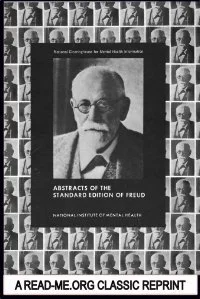Edited by Robert Boyers
This is a thoroughly revised edition of a volume published by the quarterly SALMAGUNDI (number 20, Summer-Fall 1972). That earlier collection included in its 248 pages the first version of a new work by Philip Rieff entitled "Fellow Teachers," a work which has itself undergone extensive revision and elaboration and which was published independently by Harper and Row late in 1973. A small excerpt from that book is all our present collection can claim. Now Rieff si clearly the commanding presence in this volume, as he was in the earlier periodical version, and thus we have had a major task in 'replacing' the 80-page text of "Fellow Teachers." In a sense, of course, nothing can possibly replace it, but we've feshed out the volume with a number of items that will surely be useful to students of Psychological Man, and essential for students of Rieff's theory of culture.
Lodon. Harper and Row. 1975. 230p. CONTAINS MARK-UP




